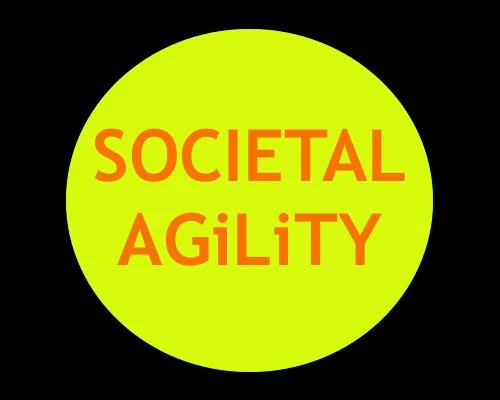From Polarisation → Participation: What Kent's Local Swing Is Telling Leaders
While everyone was analysing what happened on 1 May, I've been thinking about what happens next. On 1 May, Kent delivered a system shock. Reform UK took 57/81 seats (70%); the Conservatives fell to 5 (from 61 in 2021). In a county of 1.61m often treated as ‘Middle England’, that’s not churn, it’s a signal.
This isn't just any county swing. Kent, with 1.6 million residents across urban, rural, and commuter communities, has long been seen as 'Middle England', a bellwether that often foreshadows national trends. When voters here deliver a 36.6 percentage point swing, that's not reshuffling; that's a systems signal.
Pause: Are we listening? Are we being heard?
Zoom out and the pattern repeats nationwide: Reform UK gained over 450 seats across England, becoming 2025's biggest winners with 523 total seats, up from fewer than 10 just a year ago. Loyalties are unbundling; communities reward those who ship and show their working. Kent is my backyard, so here's a practical response any council, any party, can run in 90 days.
Source: BBC News
The Kent Democracy Playbook (first 90 days)
Goal: rebuild trust through inspection & adaptation in governance, public learning cycles, not press cycles.
Treat governance like a service with a backlog, not a message with a press grid.
1) Citizen Panels by civic lottery (Month 1)
Three 30-person panels so it's ordinary people, not the usual faces: Coast (Thanet & Dover), Corridor (Dartford–Gravesham), Rural West (Tonbridge & Malling, Tunbridge Wells). Provide a stipend and childcare. Each panel takes one service (e.g., roads & transport; adult social care; community safety).
By Day 30: top 10 service irritants, 5 quick wins, 3 metrics they'll monitor quarterly.
2) Six-Month Public Review (Promise → Progress → Next Move)
Every councillor hosts a ward-level open review: What did we promise? What shipped? What slipped? What changes next? Capture simple 1–5 resident scores; publish the scores and adjustments the same week. Make it a standing calendar item.
3) Show-Your-Work Dashboards (live by Day 45)
Ward-level, mobile-first dashboards showing: Backlog (top requests), Throughput (completed this week/month), Cycle time (days from request → resolution), Satisfaction (quick tap rating after closure). Open the raw data (CSV/API).
4) Fortnightly Learning Time boxes (every directorate)
Every two weeks: pick one bottleneck, run one experiment, publish one note, win / lose / learn. Normalise iteration.
5) Ethics Gate on quick savings
If rapid savings are proposed, show the trade-offs up front: short-term cash vs. long-term statutory, climate and maintenance liabilities, e.g.,road patching now vs. resurfacing/whole-life cost later”. Share your impact screen before cutting budgets.
Want to start smaller? Try this 20-minute exercise with your community group or ward committee: The Solution Spectrum, it helps people feel the difference between being directed and being included. It's what citizen panels do at scale, but you can test it tonight.
Why this works
Because it treats governance like a service people experience every day, not a message to be managed every quarter. The Kent playbook puts five proven cultural shifts to work:
From Delegation → To Participation: citizen panels shape priorities, not just politicians
From Debate → To Dialogue: reviews create space for listening, not just defending
From Perfection → To Experimentation: learning time boxes replace grand promises with small tests
From Control → Trust: open dashboards share power through transparency
From Defending → To Learning: public course-correction becomes a democratic virtue
These aren't theoretical shifts, they're proven practices I've tested with communities from Amman to London, helping people move from resignation to agency in a single day.
In a volatile, multi-party environment, legitimacy is earned in public, in increments. Councils that ritualise learning, auditable by residents, will keep trust even when they miss.
A local call to action
To Kent's leadership: announce the 90-day plan this month. Publish the first three panel briefs and the dashboard schema now, you'll be surprised how many residents offer to help.
To opposition groups: don't wait. Run shadow panels and dashboards in your wards. Governance improves when all sides make learning public.
To civil society and business: sponsor childcare, venues and data-viz support so participation is practical, not performative.
Ready to act? Join the Kent Democracy Pilot
Pick your lane and start this week:
Leaders (Cabinet & Directors) — Adopt the 90-day playbook. Name a delivery owner, set Day-45 dashboard live dates, and publish your first three panel briefs.
Councillors (any party) — Schedule your first Six-Month Public Review now; share the date publicly and invite two local schools, two traders and two community groups.
Residents & Community Groups — Host a 60-minute "kitchen-table mini-panel." Collect the top 3 irritants + 1 quick win on a single page and hand it to your councillor.
Businesses & Universities — Offer one venue slot per month and a data-visualisation volunteer hour to help keep dashboards clear and honest.
If you'd like templates (panel brief, review agenda, dashboard schema, timebox note), get in touch and I'll share a starter pack.
When politics polarises, practice can still participate.
Thank you for reading. If you're new here, I'm Kubair Shirazee, I help people teams, organisations and communities navigate past the status quo and explore better ways of collaborating and delivering impact. This Kent playbook applies principles from my broader work on Societal Agility, helping communities shift from rigid, top-down systems to adaptive, people-powered ones.











